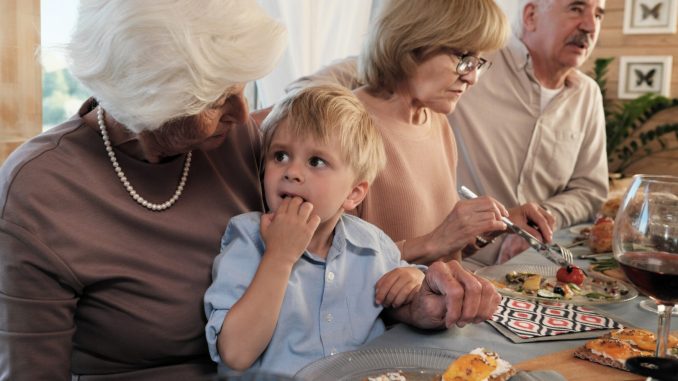
Estimated reading time: 9 minutes
Key Takeaways
- Grandparents provide invaluable emotional support that strengthens family resilience.
- Their lifetime of experience offers practical guidance to younger generations.
- Active grandparental involvement improves children’s mental health and social skills.
- They preserve cultural traditions, rituals, and family history.
- Public policy often overlooks their massive economic and caregiving contributions.
Table of Contents
Lifetimes of Learning, Lessons Worth Hearing
Grandparents have navigated wars, economic downturns, and sweeping social change. That breadth of experience crystallises into everyday wisdom younger relatives can draw upon.
- Health strategies rooted in practical living, not theory
- Seasoned perspectives on education after witnessing decades of reform
- Ethical compasses forged when consequences felt immediate and real
Surveys from the University of Oxford reveal that nine in ten adult grandchildren still lean on a grandparent’s outlook when making major decisions. Their stories—told at dinner tables, in gardens, or during a quiet car ride—equip the next generation to stand on its own feet.
Bridging the Generation Gap
The bond between grandparent and grandchild ranks just behind the parent-child tie for emotional weight, yielding measurable benefits for both parties.
- Broader emotional safety nets
- Sharper mental-health outcomes—fewer depressive symptoms and a deeper sense of belonging
- Reliable reassurance when upheaval strikes home life
For elders, the relationship delivers renewed purpose, a factor known to reduce post-retirement depression. Affection, ideas, and humour weave generations together into a fabric stronger than any single strand.
Guardians of Culture and Ritual
Families don’t inherit identity automatically. Someone must safeguard recipes, dialect words, and local tales. Grandparents shoulder that mission almost instinctively.
- Narratives that transport young minds to places photos can’t capture
- Religious or civic ceremonies that signal belonging
- Cooking sessions whose aromas trigger memories and meaning
- Holiday routines that remind everyone where they came from
Research from the University of Exeter indicates that children grounded in family heritage score higher on self-esteem and cope better with stress.
An Anchor for Mental Health
Studies in the British Journal of Psychiatry confirm that adolescents who confide in grandparents report lower anxiety.
- Consistent affection that outlasts teenage turbulence
- Perspective that shrinks temporary problems down to size
- Advice delivered without the pressure of parental enforcement
In moments of crisis, grandparents help families breathe.
Modelling Social Conduct
Children absorb social cues by observation. A grandparent who greets the postal worker by name or volunteers at a food bank plants seeds of empathy and duty.
- Empathy displayed through small courtesies
- Duty emphasised by decades of reliable work attendance
- Respect for neighbours, public spaces, and differences of opinion
Research from Cambridge University links grandparental involvement to higher social-competence scores by age ten—even after controlling for household income.
Practical and Financial Support
Money seldom tops their conversations, yet grandparents quietly subsidise family life. In the UK alone they spend roughly £3,900 per household per year on grandchildren.
- Tuition fees and after-school clubs
- Uniforms, bus passes, and sports gear
- Small treats that brighten weekends
The Office for National Statistics notes that 14 % of children live with a grandparent, and nearly one million households rely on grandparents as primary carers—freeing parents to work and reducing reliance on public aid.
Reinforcing Family Bonds
Shared memories thicken the thread linking generations.
- Origin stories behind family names or heirlooms
- Sunday lunches where multiple age groups swap news
- Hands-on hobbies—gardening, model building—pursued side by side
These moments teach persistence, generosity, and grace under pressure—lessons no textbook rivals because they arrive wrapped in personal context.
Supporting Learning
Academic goals flourish amid steady encouragement. Grandparents deliver when parents juggle multiple jobs.
- Listening patiently to reading practice
- Turning personal memories into vivid history lessons
- Teaching budgeting, repair, and craft skills schools often skip
A Sutton Trust study found pupils with active grandparent participation achieved an extra GCSE grade on average.
Why Recognition Lags
Nearly 1.4 billion people are grandparents—close to one-fifth of humanity—yet policy discussions rarely spotlight their unpaid labour.
- Age stereotypes paint elders as passive receivers rather than active contributors
- Economic models ignore unpaid care—no official job title means invisible work
- Limited longitudinal studies track their ripple effect on productivity
Ignoring these inputs is more than an oversight; it is a policy blind spot.
A Call to Act
Compliments are lovely, action is better.
- Schedule regular visits and ask about their past—their stories are living textbooks
- Include them in relocation or education decisions
- Support flexible-work campaigns so parents and grandparents can coordinate care
- Say “thank you” often—small words, huge impact
Closing Thoughts
Grandparents deliver guidance, stability, cultural memory, childcare, and financial aid—benefits that ripple far beyond a single household. Valuing them isn’t sentimentality; it is smart social planning. When we support grandparents, entire communities gain depth and resilience.

FAQ
How can I encourage my children to bond with their grandparents?
Plan shared activities—cooking, gardening, or storytelling—that allow natural conversation and fun. Consistency builds comfort.
Do grandparents really influence academic success?
Yes. Studies like the Sutton Trust report show active grandparental involvement can raise average grades, partly by providing extra tutoring time and motivation.
What policies best support multigenerational households?
Flexible working hours, caregiver tax credits, and investment in community centres that offer intergenerational programs can all ease the logistical load.
Are there risks of over-reliance on grandparents for childcare?
Balance is key. Open dialogue about time, energy, and boundaries ensures caregiving remains a joy, not a burden.
How can society better recognise grandparents’ contributions?
By integrating their unpaid labour into economic models, funding research on multigenerational benefits, and highlighting success stories in media and policy forums.
